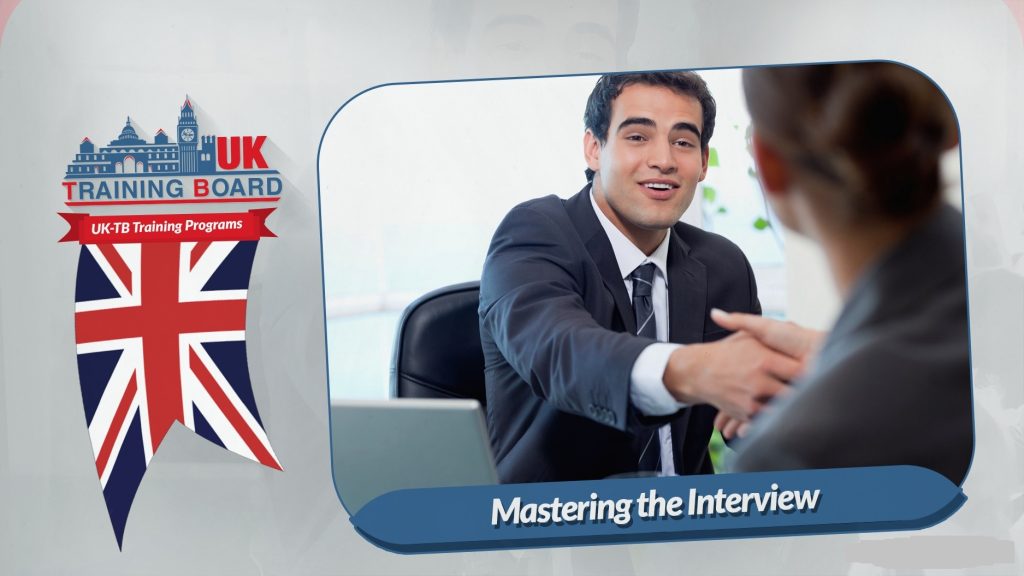In today’s highly competitive job market, it’s essential to be prepared for a variety of interview formats. Whether you’re facing a traditional one-on-one interview, a panel interview, or even a virtual interview, each format comes with its own unique challenges. That’s why it’s crucial to seek expert guidance from interview coaching consultants to help you navigate these different formats with confidence.
We understand the importance of standing out in a crowd of applicants. Our team of experienced interview coaches has supported countless individuals in honing their interview skills and mastering various interview formats. With their guidance, you’ll learn how to highlight your strengths, answer challenging questions, and leave a lasting impression on interviewers.
Understanding the different types of interview formats
When it comes to job interviews, there is no one-size-fits-all approach. Different companies and industries may use various interview formats to assess candidates’ suitability for a position. Understanding these formats is crucial to your interview success.
Here are some of the most common types of interview formats you may encounter:
- Traditional one-on-one interviews: This is the most common type of interview format where you meet with a single interviewer. It allows for a more personal interaction and gives the interviewer an opportunity to delve deeper into your skills and experiences.
- Panel interviews: In a panel interview, you’ll face multiple interviewers simultaneously. This format is often used for senior-level positions or when different departments or stakeholders need to be involved in the hiring decision. It can be intimidating, but with the right preparation, you can confidently navigate this format.
- Phone and video interviews: With the rise of remote work and global hiring, phone and video interviews have become increasingly popular. These interviews require additional preparation to ensure you come across as engaging and professional despite the lack of face-to-face interaction.
- Group interviews: In a group interview, several candidates are assessed together. This format allows the interviewer to observe how candidates interact with each other, assess their teamwork skills, and see who stands out from the group.
- Behavioural and situational interviews: These types of interviews focus on assessing how you handle specific situations or scenarios. Interviewers may ask you to provide examples of past experiences or hypothetical situations to gauge your problem-solving and critical thinking abilities.
Benefits of preparing for different interview formats
Preparing for different interview formats offers several benefits that can significantly increase your chances of success:
- Increased confidence: By familiarising yourself with different interview formats, you’ll feel more confident and prepared. You’ll know what to expect and how to navigate each format, which will help ease any interview jitters.
- Enhanced adaptability: Being adaptable is a valuable skill in today’s job market. By preparing for different interview formats, you’ll demonstrate your ability to adapt to different situations and environments, making you a more attractive candidate to potential employers.
- Improved communication skills: Each interview format requires different communication strategies. By practising for various formats, you’ll enhance your ability to effectively communicate your skills, experiences, and qualifications, making a strong impression on interviewers.
- Increased interview success rate: When you prepare for different interview formats, you’ll be able to tailor your responses and presentation style to each specific format. This customization increases your chances of connecting with interviewers and showcasing your suitability for the role.
Common interview formats and their characteristics
Let’s explore some common interview formats in more detail and understand their unique characteristics:
Traditional one-on-one interviews
Traditional one-on-one interviews are the most familiar format for many job seekers. In these interviews, you’ll typically meet with a single interviewer who will ask you a series of questions to assess your qualifications, skills, and fit for the role. This format allows for a more personal interaction, giving you an opportunity to build rapport with the interviewer.
To excel in traditional one-on-one interviews, consider the following tips:
- Research the company and the role: Thoroughly research the company and the position you’re interviewing for to demonstrate your interest and knowledge during the interview.
- Prepare answers to common interview questions: Anticipate common interview questions and prepare thoughtful and concise answers that highlight your relevant experiences and skills.
- Practise active listening and effective communication: Show genuine interest in the interviewer’s questions and actively listen to their responses. Respond clearly and concisely, avoiding rambling or overcomplicating your answers.
- Prepare questions to ask the interviewer: Asking thoughtful and well-researched questions shows your enthusiasm and engagement. Prepare questions that demonstrate your interest in the company and the role.
Phone and video interviews
Phone and video interviews have become increasingly common, especially with the rise of remote work and virtual hiring processes. These interviews require additional preparation to ensure you make a positive impression without the benefit of face-to-face interaction.
To succeed in phone and video interviews, keep the following strategies in mind:
- Test your technology: Ensure that your internet connection, audio, and video settings are all working properly before the interview. Test call quality and familiarise yourself with the video conferencing platform being used.
- Choose a suitable interview location: Find a quiet and well-lit space for your interview. Minimise distractions, dress professionally, and ensure your background is clean and presentable.
- Maintain eye contact and body language: Although you’re not physically present, maintaining eye contact with the camera and displaying positive body language is essential. Sit up straight, smile, and use hand gestures appropriately.
- Prepare visual aids: In video interviews, you may have an opportunity to share visual aids like a portfolio or presentation. Prepare these materials in advance, ensuring they are professional and relevant to the role.
Panel and group interviews
Panel and group interviews involve facing multiple interviewers or being assessed alongside other candidates. These formats test your ability to communicate effectively, collaborate with others, and stand out from the competition.
To excel in panel and group interviews, consider the following strategies:
- Research the interviewers: If you have information about the interviewers in advance, research their backgrounds and roles within the company. This knowledge can help you tailor your answers and engage with them more effectively.
- Engage with all interviewers or candidates: Make an effort to address each interviewer or candidate individually, showing that you value their input and perspectives. Active engagement demonstrates your teamwork skills and ability to collaborate.
- Showcase your unique value proposition: In a panel or group setting, it’s crucial to stand out from the other candidates. Highlight your unique skills, experiences, and qualifications that make you the ideal candidate for the role.
- Be respectful and attentive: Remember to actively listen and show respect for everyone in the interview. Acknowledge and build on others’ ideas when appropriate, demonstrating your ability to work well in a team environment.
Behavioural and situational interviews
Behavioural and situational interviews are designed to assess how you respond to specific scenarios or situations. Interviewers may ask you to provide examples of past experiences or hypothetical situations to gauge your problem-solving and critical thinking abilities.
To handle behavioural and situational interviews successfully, keep the following tips in mind:
- Prepare specific examples: Anticipate the types of situations or scenarios you may be asked about and prepare specific examples that showcase your skills, abilities, and achievements. Use the STAR method (Situation, Task, Action, Result) to structure your responses.
- Highlight your problem-solving skills: During these interviews, focus on demonstrating your ability to think critically, make sound decisions, and solve problems effectively. Explain the steps you took to address the situation and the positive outcomes you achieved.
- Be honest and authentic: Interviewers are looking for genuine responses that reveal your true character and approach to work. Be honest about your experiences, successes, and areas for improvement, and explain how you’ve learned and grown from challenges.
- Stay composed under pressure: Behavioural and situational interviews can be challenging, as they often require you to think on your feet. Stay calm, take a moment to gather your thoughts, and provide thoughtful and composed responses.
The importance of practising for different interview formats
Regardless of the interview format, practice is key to success. Practising for different interview formats helps you become more comfortable and confident in your ability to handle any situation that may arise. Here’s why practising is crucial:
- Refining your responses: Through practice, you can refine your responses to common interview questions and tailor them to each specific format. This ensures that your answers are concise, relevant, and impactful.
- Polishing your delivery: Practising allows you to work on your delivery, such as your speaking pace, tone, and body language. You can identify areas for improvement and make adjustments to come across as confident and professional.
- Building confidence: The more you practise, the more confident you’ll become. Confidence is essential in interviews, as it helps you articulate your thoughts clearly, engage with interviewers, and leave a lasting impression.
- Overcoming nerves: Nervousness is natural before interviews, but practising can help you overcome those nerves. By simulating different interview scenarios, you’ll become more accustomed to the process, reducing anxiety and allowing your true abilities to shine
In conclusion, preparing for different interview formats is essential in today’s competitive job market. By understanding the unique characteristics of each format and seeking expert guidance from interview coaching consultants, you can navigate any interview with confidence. Remember to research the company, tailor your responses, and practise for different interview scenarios. With the right preparation, you’ll stand out from the competition and increase your chances of landing the job of your dreams.
Invest in interview coaching from us, and let our experienced interview coaches help you excel in any interview format. Together, we’ll ensure you have the skills, strategies, and confidence needed to succeed. Don’t miss out on valuable opportunities – prepare yourself for success and take your career to new heights.



